During the livestream I did last night I had one of those moments where you fully appreciate how far Linux gaming has come.
Make sure your sound is up, it's not about the video, but what's said.
I tend to babble on a bit during livestreams as my mind ends up wandering, but a viewer managed to catch this clip which I just had to share (thanks to Leeo97one for posting it in our Discord):
I also ended up comparing different Linux distributions to Pizza toppings for some reason. If you want to catch more nonsense like that, be sure to follow us on Twitch.
In April 2010, I was posting about tiny indie games like Osmos being released for Linux (Osmos is awesome though). I thought to myself back then "this is incredible!", how little did I know that a few years later I would be livestreaming a game of Rocket League full of Linux players.
We may not get every AAA release ever, but what we do get is usually quite good. We have more games on Linux than I ever thought possible! We have even more arriving this year like Civilization VI and I'm sure there will be plenty of others announced as time goes on.
Linux is too small to get the majority of AAA games right now, as we would be spoilt for choice and our market-share would be stretched too thin across too many games, resulting in lower sales and less friendly developers in future. Essentially, too many big games right now would probably be harmful to our growth as a gaming platform. I'm happy with what we have now, and as we grow you can be sure we will get more.
Just today I setup another Antergos PC in my home attached to my TV, and GNOME Shell works surprisingly well on a big screen:
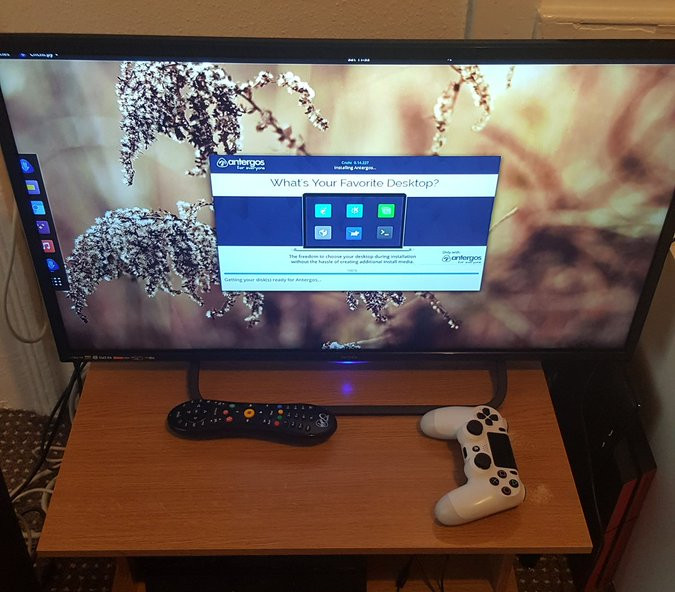
My family now play Slime Rancher on the family TV, and they absolutely love it.
It was originally going to get Windows 10 on it for various Windows-only children's games, but no matter how it was copied onto a USB drive Windows 10 just refused to boot. It's funny how much easier I find Linux to be at almost everything it's really quite amazing. First attempt at getting Antergos burnt onto a USB worked without a single issue.
Be sure to share your interesting stories in the comments.
Make sure your sound is up, it's not about the video, but what's said.
I tend to babble on a bit during livestreams as my mind ends up wandering, but a viewer managed to catch this clip which I just had to share (thanks to Leeo97one for posting it in our Discord):
I also ended up comparing different Linux distributions to Pizza toppings for some reason. If you want to catch more nonsense like that, be sure to follow us on Twitch.
In April 2010, I was posting about tiny indie games like Osmos being released for Linux (Osmos is awesome though). I thought to myself back then "this is incredible!", how little did I know that a few years later I would be livestreaming a game of Rocket League full of Linux players.
We may not get every AAA release ever, but what we do get is usually quite good. We have more games on Linux than I ever thought possible! We have even more arriving this year like Civilization VI and I'm sure there will be plenty of others announced as time goes on.
Linux is too small to get the majority of AAA games right now, as we would be spoilt for choice and our market-share would be stretched too thin across too many games, resulting in lower sales and less friendly developers in future. Essentially, too many big games right now would probably be harmful to our growth as a gaming platform. I'm happy with what we have now, and as we grow you can be sure we will get more.
Just today I setup another Antergos PC in my home attached to my TV, and GNOME Shell works surprisingly well on a big screen:

My family now play Slime Rancher on the family TV, and they absolutely love it.
It was originally going to get Windows 10 on it for various Windows-only children's games, but no matter how it was copied onto a USB drive Windows 10 just refused to boot. It's funny how much easier I find Linux to be at almost everything it's really quite amazing. First attempt at getting Antergos burnt onto a USB worked without a single issue.
Be sure to share your interesting stories in the comments.
Some you may have missed, popular articles from the last month:
All posts need to follow our rules. For users logged in: please hit the Report Flag icon on any post that breaks the rules or contains illegal / harmful content. Guest readers can email us for any issues.
I'm happy that you failed to install Windows. It is really this kind of pragmatism that kills our market share in surveys. Make the Windows-only child games run with Wine, it is acceptable to use it in these kind no other possibility "emergency situations". I would have chosen SteamOS for a TV though.
6 Likes, Who?
Yes, this part of the livestream really marked me. Glad that this clip can illustrate such an article! ^_^
Last edited by Leeo97one on 19 Sep 2020 at 1:37 am UTC
Last edited by Leeo97one on 19 Sep 2020 at 1:37 am UTC
1 Likes, Who?
I went to try your Antergos and it failed to boot after installing twice.Same. On my Chromebook it never finishes the install and on my desktop it doesn't correctly connect to the university's ethernet so I can't install it.
0 Likes
I tried Antergos some years ago on my desktop. It was pretty straight-forward and I didn't have any problems. Definitely one of the nicer distros out there, but I feel more at home with Manjaro.
Last edited by Aryvandaar on 21 Jan 2017 at 10:26 pm UTC
Last edited by Aryvandaar on 21 Jan 2017 at 10:26 pm UTC
0 Likes
I'm happy that you failed to install Windows. It is really this kind of pragmatism that kills our market share in surveys. Make the Windows-only child games run with Wine, it is acceptable to use it in these kind no other possibility "emergency situations". I would have chosen SteamOS for a TV though.The thing is though, not all of us are able to make every single decision alone. While I am obviously a Linux user and have been for many years, I don't make every decision for my family by myself. Some things you have to give way on, luckily for me this time around Windows showed how much of a nuisance is that my way won in the end anyway!
5 Likes, Who?
The fact that having reached basic parity with other platforms warrant moments of epiphany is a lot more telling of the whole situation. No user should ever have to stop and think "wow, we're finally being treated as equals".
1 Likes, Who?
Avout Antegros: I installed it on my secondary computer and also had several problems with stability of the installation, but eventually it went smoothly (I made several attempts) and now the system works great.
Last edited by Galatolol on 21 Jan 2017 at 11:10 pm UTC
Last edited by Galatolol on 21 Jan 2017 at 11:10 pm UTC
0 Likes
Yes, it is amazing how far Linux gaming has progressed since Valve started trying to marshal support for the platform. Before that, there had only really been patchy support from the likes of Loki, LGP and a few other small porting houses; now we have over 3000 Linux games on Steam.
You are also right to point out the potential for stretching the Linux purchases too thin. Arguably, this may already be the case, as even the most ardent Linux supporter would be unlikely to buy 3000 games; I have about 100, have played only a fraction of those, and I'm sure that I will never do justice to many titles.
My real concern for the future of Linux gaming as a whole ( as opposed to any particular game/genre ) is in understanding the reasons why we have the current level of support, and how the motivations of the players involved might change.
For example, a major reason for Linux game availability is the rise of high quality game engines, many of which have added Linux support. As these engines generally have many Indie developer customers, I'm guessing that as long as the Indies make enough from their Linux sales, then it will be worth the engine companies continuing to support Linux. But I don't know of any concrete figures that would indicate that continued Linux support is worth it for these companies.
A second reason for increased Linux support is the general improvement in tools/techniques/understanding of cross-platform development over the last decade. The failure of Microsoft to gain the same stranglehold on mobile devices as on the PC ( and the rise of iOS and android ) along with greater exposure of developers to Unix/Posix at University are important there. This is an improvement that is likely to continue.
But for me, the main reason for improved Linux game support remains as a hedge against the fear of the walled garden ( Microsoft, Apple, Google or whoever else ). It is certainly the reason Gabe Newell gave for developing SteamOS and the Steam Client for Linux. It is also probably why several of the hardware and game software companies are happy to support Valve in balancing power between the different industry players. Again, I have seen no figures as to the costs for these Linux supporting companies, and how they justify them against monopoly threat.
Obviously the ideal safeguard would be for Linux to become a significant games platform ( in the region of 20% market share ), but it is unclear how this might occur. The vast majority of people ( gamers included ) simply don't care enough, and/or are not sufficiently able to change their OS from pre-install, and indeed many would actively not want to. I honestly doubt that organic growth would ever result in Linux getting above 5% market share, so real growth depends on pre-installs, which have failed to gain traction so far.
I would certainly be interested to hear any concrete figures you may have heard.
Last edited by etonbears on 22 Jan 2017 at 12:50 am UTC
You are also right to point out the potential for stretching the Linux purchases too thin. Arguably, this may already be the case, as even the most ardent Linux supporter would be unlikely to buy 3000 games; I have about 100, have played only a fraction of those, and I'm sure that I will never do justice to many titles.
My real concern for the future of Linux gaming as a whole ( as opposed to any particular game/genre ) is in understanding the reasons why we have the current level of support, and how the motivations of the players involved might change.
For example, a major reason for Linux game availability is the rise of high quality game engines, many of which have added Linux support. As these engines generally have many Indie developer customers, I'm guessing that as long as the Indies make enough from their Linux sales, then it will be worth the engine companies continuing to support Linux. But I don't know of any concrete figures that would indicate that continued Linux support is worth it for these companies.
A second reason for increased Linux support is the general improvement in tools/techniques/understanding of cross-platform development over the last decade. The failure of Microsoft to gain the same stranglehold on mobile devices as on the PC ( and the rise of iOS and android ) along with greater exposure of developers to Unix/Posix at University are important there. This is an improvement that is likely to continue.
But for me, the main reason for improved Linux game support remains as a hedge against the fear of the walled garden ( Microsoft, Apple, Google or whoever else ). It is certainly the reason Gabe Newell gave for developing SteamOS and the Steam Client for Linux. It is also probably why several of the hardware and game software companies are happy to support Valve in balancing power between the different industry players. Again, I have seen no figures as to the costs for these Linux supporting companies, and how they justify them against monopoly threat.
Obviously the ideal safeguard would be for Linux to become a significant games platform ( in the region of 20% market share ), but it is unclear how this might occur. The vast majority of people ( gamers included ) simply don't care enough, and/or are not sufficiently able to change their OS from pre-install, and indeed many would actively not want to. I honestly doubt that organic growth would ever result in Linux getting above 5% market share, so real growth depends on pre-installs, which have failed to gain traction so far.
I would certainly be interested to hear any concrete figures you may have heard.
Last edited by etonbears on 22 Jan 2017 at 12:50 am UTC
7 Likes, Who?
I'm curious, how was gaming in Linux before 2013? I only became aware that Linux was anything more than a CLI OS(as in, completely lacking any GUI elements) in the second half of 2013 and installed Ubuntu for the first time in October of that year, after Steam had officially started supporting linux.
1 Likes, Who?
It is quite amazing how far we've come in a relatively short amount of time. I just hope Valve stays the course, because it wouldn't have happened without them, and Linux gaming, at least at this point in time, probably wouldn't survive without them.
Last edited by Mountain Man on 22 Jan 2017 at 3:57 am UTC
Last edited by Mountain Man on 22 Jan 2017 at 3:57 am UTC
2 Likes, Who?
I'm curious, how was gaming in Linux before 2013? I only became aware that Linux was anything more than a CLI OS(as in, completely lacking any GUI elements) in the second half of 2013 and installed Ubuntu for the first time in October of that year, after Steam had officially started supporting linux.Before Steam for Linux was launched, commercial games were almost never released for Linux. AAA releases were especially rare.
0 Likes
I'm curious, how was gaming in Linux before 2013? I only became aware that Linux was anything more than a CLI OS(as in, completely lacking any GUI elements) in the second half of 2013 and installed Ubuntu for the first time in October of that year, after Steam had officially started supporting linux.
for me it was mainly like this: http://www.playdeb.net/updates/ubuntu/15.10/?page=1
note that this includes dosbox and scummvm.
0 Likes
Before Steam for Linux was launched, commercial games were almost never released for Linux. AAA releases were especially rare.
Humble Bundle started pushing Linux gaming before Steam, and quite successfully. They encouraged developers of commercial games to make Linux ports. So let's give credit where it's due. Their initial bundles always required developers to produce Linux versions to participate. Only later they started slacking, and limited it to their periodic indie bundles only.
Last edited by Shmerl on 22 Jan 2017 at 8:29 am UTC
6 Likes, Who?
I believe Desura was one of the first to add Linux as an equal platform next to Windows and MacOS, and was able to get a significant amount of enjoyable indie games on Linux. Steam cam later and was nothing less than a revolution, but there was something between Loki/LGP and Steam.
3 Likes, Who?
I'm curious, how was gaming in Linux before 2013? I only became aware that Linux was anything more than a CLI OS(as in, completely lacking any GUI elements) in the second half of 2013 and installed Ubuntu for the first time in October of that year, after Steam had officially started supporting linux.
Before Steam and Humble Bundle, I spent plenty of time with ID Software's titles natively. Doom 3, Quake 4 and Enemy Territory: Quake Wars. You still had to buy the Windows DVD version, but then download the Linux client from ID. The client would then copy the data files from DVD, and you were up and running.
3 Likes, Who?
I'm curious, how was gaming in Linux before 2013? I only became aware that Linux was anything more than a CLI OS(as in, completely lacking any GUI elements) in the second half of 2013 and installed Ubuntu for the first time in October of that year, after Steam had officially started supporting linux.
I started using Linux as my primary desktop OS in 2002. So you were slightly late. :D I didn't do too much gaming back then, but there was more out there than you realise. ID software was mentioned, but by the LOKI had come (and almost gone) and after that Linux Game Publishing did quite a few ports (I have a stack of DVDs from them). Not quite the numbers generated by Humble and Steam, but enough to fill my available gaming time.
0 Likes
I'm curious, how was gaming in Linux before 2013? I only became aware that Linux was anything more than a CLI OS(as in, completely lacking any GUI elements) in the second half of 2013 and installed Ubuntu for the first time in October of that year, after Steam had officially started supporting linux.
i switched to linux at the end of 2006. Luckily i was mostly just a World of Warcraft addict back in those days and it worked perfectly acceptable under wine. Played few other games that worked in wine also ofc and few native games like Nexuiz. In 2010 though i got Warhammer Online addiction, that was pretty bad under wine. but i mostly got through it, then came Minecraft and Humble Bundle (desura also) with good indie games and finally Steam came out and the ball started rolling even more. Here we are.
2 Likes, Who?
I remember how I played a lot of Savage 2, as it was the only available Linux game that I liked back when I was starting with Linux.
2 Likes, Who?
When I started out with Linux in 2006 I only used Windows for gaming. It wasn't before 2013 that I started using Linux for gaming.
0 Likes
Although I've been using Linux for a long time (e.g. 15+ years) I moved to making it my primary desktop only 'fairly' recently, e.g. 5 years ago.
During my earlier years of Linux desktop, I was very into playing free "Nexuiz" FPS game. There was a decent community of Windows and Linux players, and we'd have fantastic high-speed deathmatch competitions (DOOM, Quake, Unreal Tournament style play). Unfortunately the intellectual property got tied up with one of the developers, which annoyed the community who'd contributed to it, and there is a different paid-for Nexuiz game (similar, but not identical) available to purchase.
The Nexuiz community moved on to build free "Xonotic" game, which is still active (but the servers are not especially populated with players :( ). The old community edition of free Nexuiz is still around, and online servers running, but very empty nowadays. Although it's good, something about "Xonotic" isn't quite right for me, whereas "Nexuiz" just felt fantastic.
I was also playing the other various free games around on Linux, e.g. The Battle For Wesnoth, Armagetron, OpenArena, free Flash browser games such as Gemcraft, Kingdom Rush, Monster's Den.
One of the earliest paid-for Linux titles I bought was "Legend of Grimrock" (DRM-free version on GOG). Previously, I'd enjoyed "Dungeon Master" early 90s game, and Grimrock was a fantastic modern version of the same style. Then I was playing and loving "Ziggurat" FPS shooter PvE game (also bought on GOG).
And in the past year, I have been buying up loads of Linux games on Steam and GOG.
During my earlier years of Linux desktop, I was very into playing free "Nexuiz" FPS game. There was a decent community of Windows and Linux players, and we'd have fantastic high-speed deathmatch competitions (DOOM, Quake, Unreal Tournament style play). Unfortunately the intellectual property got tied up with one of the developers, which annoyed the community who'd contributed to it, and there is a different paid-for Nexuiz game (similar, but not identical) available to purchase.
The Nexuiz community moved on to build free "Xonotic" game, which is still active (but the servers are not especially populated with players :( ). The old community edition of free Nexuiz is still around, and online servers running, but very empty nowadays. Although it's good, something about "Xonotic" isn't quite right for me, whereas "Nexuiz" just felt fantastic.
I was also playing the other various free games around on Linux, e.g. The Battle For Wesnoth, Armagetron, OpenArena, free Flash browser games such as Gemcraft, Kingdom Rush, Monster's Den.
One of the earliest paid-for Linux titles I bought was "Legend of Grimrock" (DRM-free version on GOG). Previously, I'd enjoyed "Dungeon Master" early 90s game, and Grimrock was a fantastic modern version of the same style. Then I was playing and loving "Ziggurat" FPS shooter PvE game (also bought on GOG).
And in the past year, I have been buying up loads of Linux games on Steam and GOG.
0 Likes
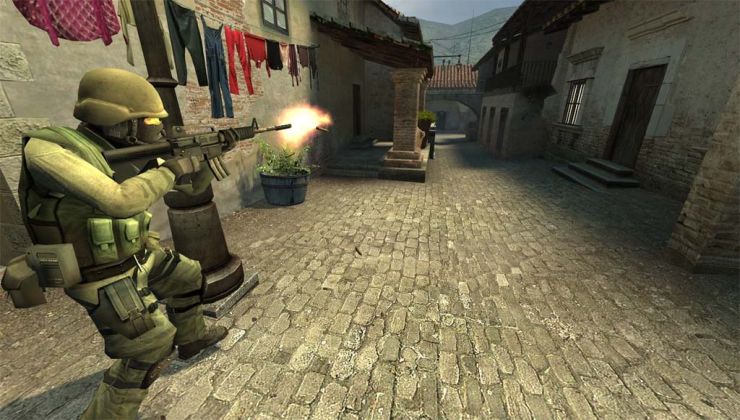
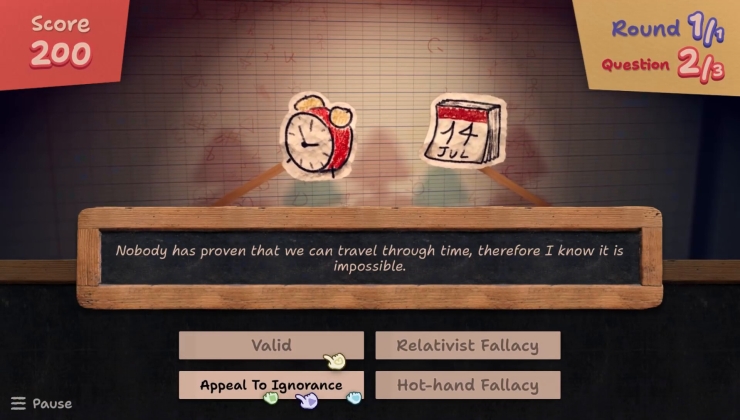
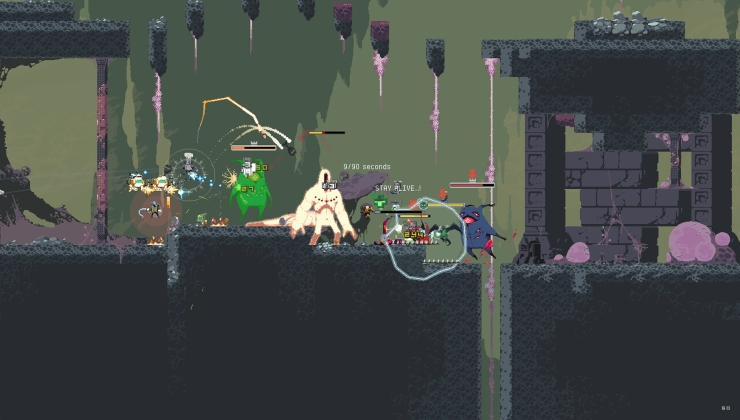
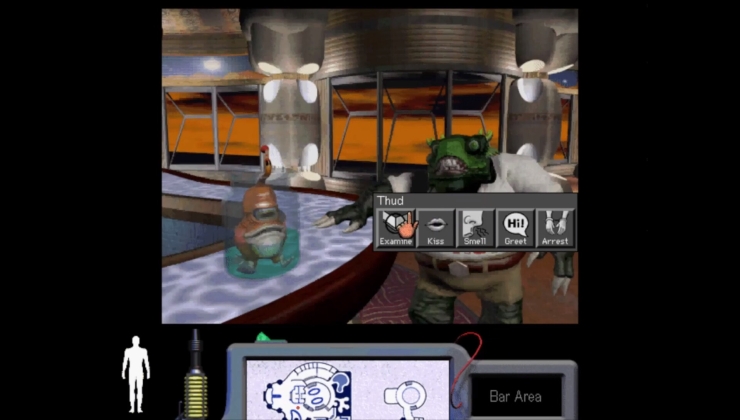







 How to set, change and reset your SteamOS / Steam Deck desktop sudo password
How to set, change and reset your SteamOS / Steam Deck desktop sudo password How to set up Decky Loader on Steam Deck / SteamOS for easy plugins
How to set up Decky Loader on Steam Deck / SteamOS for easy plugins
See more from me